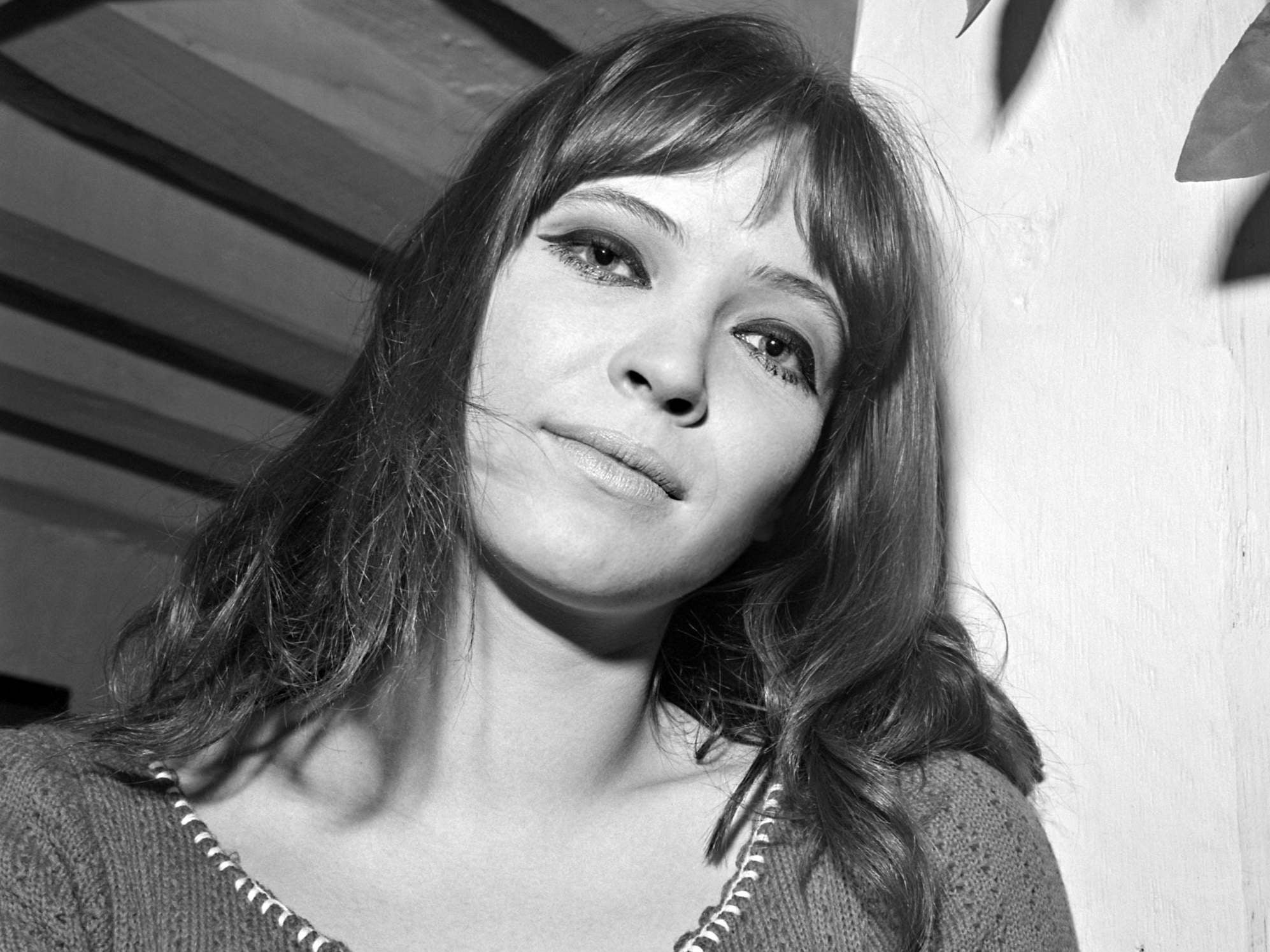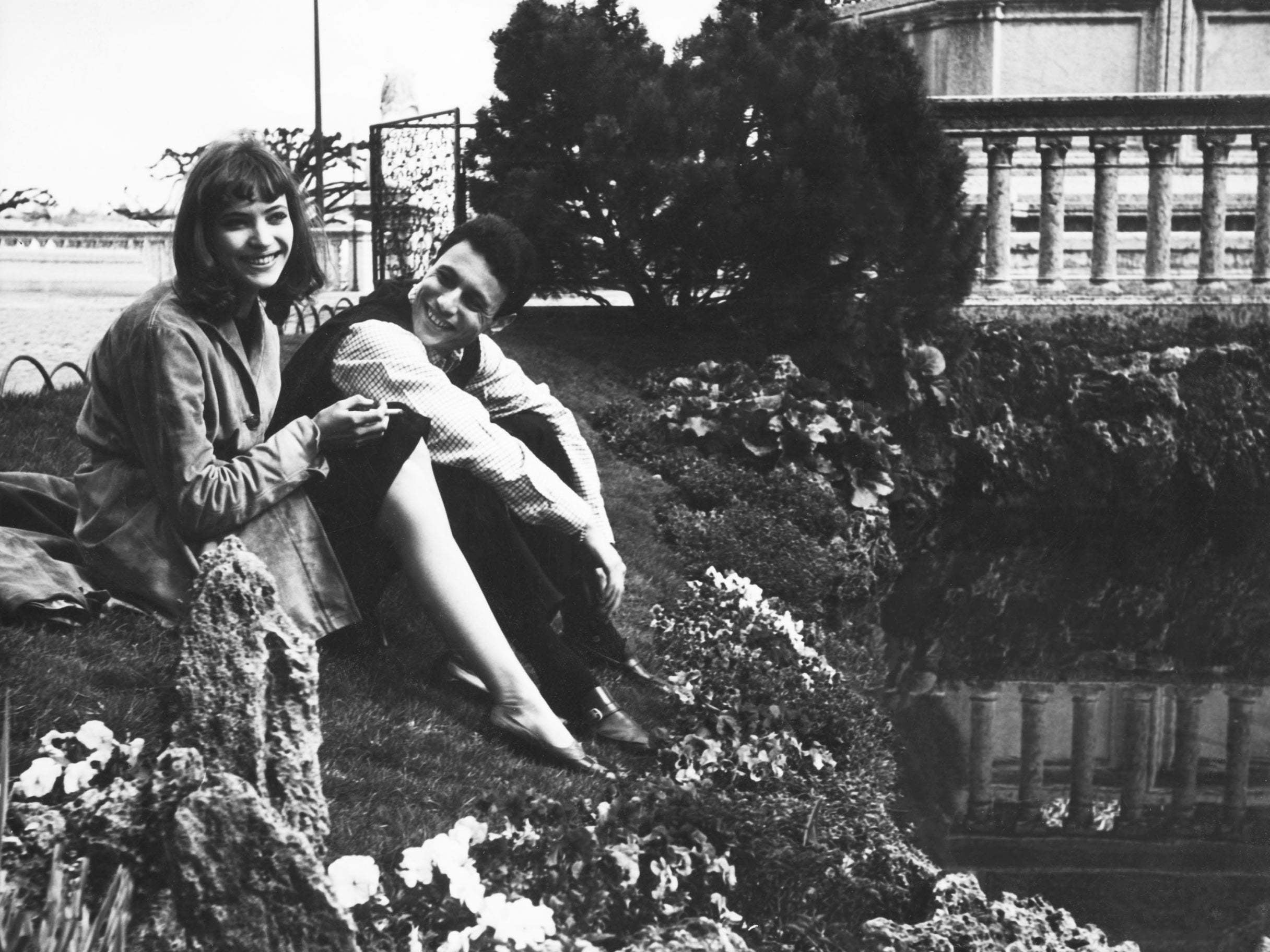Anna Karina: Actor who embodied the 1960s New Wave
She was magnetic in films by Luchino Visconti, Tony Richardson and her one-time husband Jean-Luc Godard

Your support helps us to tell the story
From reproductive rights to climate change to Big Tech, The Independent is on the ground when the story is developing. Whether it's investigating the financials of Elon Musk's pro-Trump PAC or producing our latest documentary, 'The A Word', which shines a light on the American women fighting for reproductive rights, we know how important it is to parse out the facts from the messaging.
At such a critical moment in US history, we need reporters on the ground. Your donation allows us to keep sending journalists to speak to both sides of the story.
The Independent is trusted by Americans across the entire political spectrum. And unlike many other quality news outlets, we choose not to lock Americans out of our reporting and analysis with paywalls. We believe quality journalism should be available to everyone, paid for by those who can afford it.
Your support makes all the difference.When Anna Karina first arrived in France at the age of 18, having hitchhiked all the way from Denmark, she spoke not one word of French. But having caught the eye of a Parisian casting director, the young Danish actor was soon rubbing shoulders with the likes of Coco Chanel, who helped to choose her stage name.
Then she captivated French New Wave director Jean-Luc Godard. By the end of the 1960s, Karina – who has died of cancer aged 79 – was considered a cinematic icon and a French national treasure.
Karina was born Hanne Karin Bayer in Solbjerg, Denmark. Hers was an inauspicious start to life. Her father left shortly after she was born and her mother, who owned a dress shop, sent her to live with her maternal grandparents. That arrangement lasted until Karina was four, at which point she was taken into foster care. She returned to live with her mother at the age of eight but their subsequent relationship was always going to be difficult.
By the time she was a teenager, Karina was already acting in commercials. She made her film debut at 14, in a prize-winning film by Danish director Ib Schmedes. Not long after that, she left for Paris where after a period of living on the streets she eventually found modelling work for several big designers including Chanel.
Jean-Luc Godard first noticed Karina in 1960 in a series of ads for Palmolive soap, which pictured her posing in a bath tub. When he offered her a small part in his first film, Breathless, she refused upon hearing she would be expected to go naked. When Godard raised the Palmolive ads, Karina chastised him. “I was wearing a bathing suit: it was in your mind that I was nude.”
Karina stuck to her guns and did not act for Godard until he cast her in Le Petit Soldat (The Little Soldier), his film about the Algerian war, made in 1960 but not released until 1963. It was while they were working together on that film that Karina and Godard fell in love and married, becoming one of the “It” couples of international cinema. Karina told Vogue: “We had something very special that you couldn’t get away from. It was magnetic.”
Karina’s career took off after she won the Best Actress award at the 1961 Berlin Film Festival for her performance in A Woman Is a Woman, in which she played a stripper longing for a child. Throughout the 1960s and 1970s, she starred in a dazzling array of films, including seven directed by Godard. She also worked for Luchino Visconti, Tony Richardson and Rainer Werner Fassbinder, who wrote Chinese Roulette especially for her.

At the same time, she had a successful singing career, with hits including “Roller Girl” by Serge Gainsbourg and “Sous le Soleil Exactement”. She recorded two albums: Une Histoire D’Amour and Chansons de Films, which came much later in 2005.
Not content with being in front of the camera, in 1972, Karina launched Raska, her own production company, with whom she made her directorial debut with Vivre Ensemble, based on her novel about an ill-fated relationship between an uptight history teacher and a free-spirited hippie. She published three other novels.
Karina continued to work into her late sixties, directing and starring in her last film, Victoria, about a woman with amnesia travelling across Canada, in 2008.
Her relationship with Godard was fraught and they divorced in 1965 after four years together, though she was generous about his role as a mentor, saying: “Jean-Luc gave me a gift to play all those parts. It was like Pygmalion, you know? I was Eliza Doolittle and he was the teacher.”
She subsequently remarried three times: to actors Pierre Fabre and Daniel Duval and American director Dennis Berry. She is survived by Berry.
Anna Karina, actor, born 22 September 1940, died 14 December 2019
Join our commenting forum
Join thought-provoking conversations, follow other Independent readers and see their replies
Comments